Index relies entirely on the support of donors and readers to do its work.
Help us keep amplifying censored voices today.
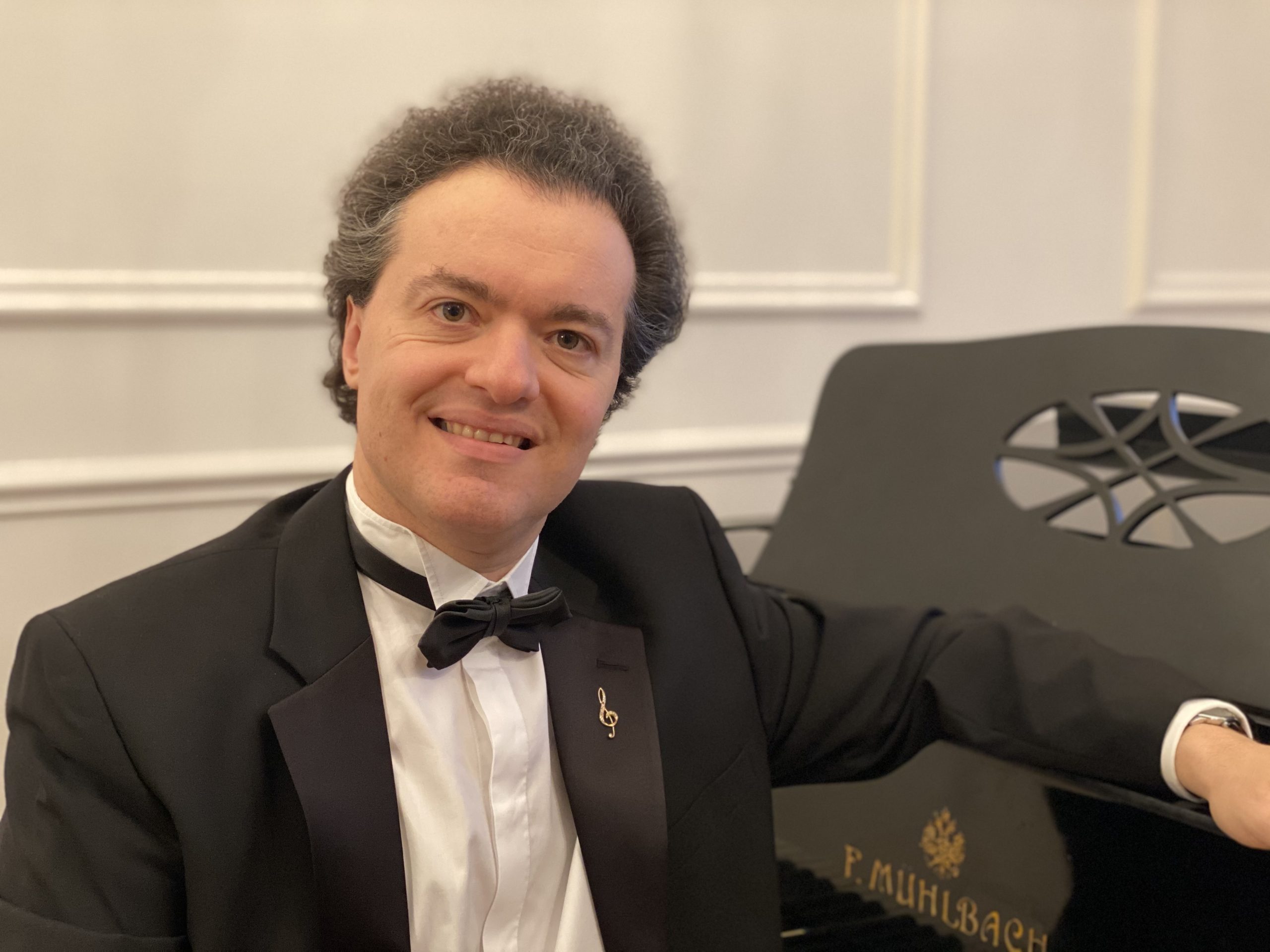
Evgeny Kissin, one of the most famous pianists in Russia, has described Vladimir Putin as a “bloodthirsty criminal”. Photo: Wikimedia Commons/Gkobe
The world in which Index on Censorship was born seems to be reemerging. In August 1968, after the blossoming of freedoms in Czechoslovakia known collectively as the Prague Spring, the Soviet Union invaded the country. Protesters were brutally crushed. Despite the violence and the stranglehold on freedoms back in Russia, eight fearless dissidents took to Red Square in Moscow to demonstrate.
One of the bold demonstrators was Pavel Litvinov, a young physicist at the time. In that same year Litvinov had co-authored a pamphlet entitled Appeal to World Public Opinion, asking those in the west to fight against the suppression of dissent in the Soviet Union. The poet Stephen Spender responded, suggesting the creation of an international committee whose goal would be to support the democratic movement in the USSR. This committee would engage writers, scholars, artists and public personalities from countries like the UK, the USA and also Latin American nations.
This is how Index on Censorship was brought into life, responding to the call of these dissidents and giving them a voice.
More than 50 years later, the USSR doesn’t exist anymore, but Russia has shocked the world with the invasion and consequential brutal war in Ukraine. What remains is the courage and bravery of people and dissidents defying the regime of Vladimir Putin. Below are just six of the noticeable Russian citizens who’ve spoken up against Putin and the war in Ukraine.
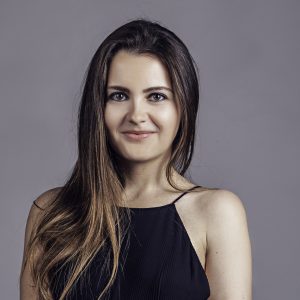
Russian artist Victoria Marchenkova, who’s been using Facebook to encourage people in Ukraine to flee to Canada. Photo: Wikimedia Commons/Na4ya
“STOP THE WAR” – that’s what the Moscow-born artist Victoria Marchenkova wrote on her website. Marchenkova works with different styles, but with one thing in mind: approaching the economic situation of the world, international traditions and its heritage. After the war in Ukraine began, she announced on her website that her solo exhibition at a Moscow gallery had been delayed until the end of the Russian invasion. Her exact words? “Please let’s save the world all together. STOP THE WAR”. Very active on Facebook, she has also encouraged people in Ukraine to flee to Canada.[/vc_column_text][vc_custom_heading text=”2. Evgeny Kissin – pianist”][vc_column_text]The pianist Evgeny Kissin has been an important name from Russia who declared himself against the war. In a solemn video titled Note of Protest, Kissin called Russia’s invasion of Ukraine a crime that has no excuse and also described Vladimir Putin as a bloodthirsty criminal. “Sadly, far from all who initiate criminal wars are punished, but none escape the judgment of history,” Kissin said. The video was published on his Instagram account and was viewed around 100,000 times.[/vc_column_text][vc_custom_heading text=”3. Mikhail Gelfand – biologist”][vc_column_text]Renowned Russian biologist Mikhail Gelfand is considered one of the most important people in the area of molecular evolution, comparative genomics and systems biology. He was the main person behind a letter signed by approximately 7,000 Russian scientists against the war in Ukraine. It’s a bold move. The Russian president has said that every Russian citizen who questions his invasion of Ukraine will be treated as a traitor and that a necessary self-purification of society will help to strengthen the country.[/vc_column_text][vc_custom_heading text=”4. Marina Ovsyannikova – journalist”][vc_column_text]
Daughter to a Russian mother and an Ukrainian father, Marina Ovsyannikova is a Russian journalist who had a job on the Channel One Russia TV channel. She gained prominence after she broke into a state-controlled Russian TV news broadcast and protested against the war. As a result, she was arrested and fined, but was released afterwards. Today, while she waits trial for interrupting the news programme, she is very active on her Instagram account. If convicted, she could be sentenced to 15 years in prison. In a recent post on Instagram, she wrote: “I wanted to demonstrate to the world that not all Russian people believe the same and I believe that many people… are against the war.”
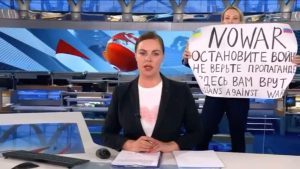
This video grab shows Russian Channel One editor Marina Ovsyannikova holding a poster reading ” Stop the war. Don’t believe the propaganda. Here they are lying to you” during on-air TV studio by news anchor Yekaterina Andreyeva, Russia’s most-watched evening news broadcast. Photo: Zuma Press/Alamy
[/vc_column_text][vc_custom_heading text=”5. Ilya Varlamov – blogger”][vc_column_text]The Russian Youtuber from Moscow has been speaking openly about the war in Ukraine on his Youtube channel, which is focused on analysing politics in Russia. Often critical in tone he has interviewed people such as Alexei Venediktov, the former editor-in-chief of the now-closed Ekho Moskvy. He has more than 3.3 million subscribers, where he’s been publishing videos almost daily. At the time of print, Varlamov had not been detained for his criticisms. He does have some experience of this though; he was briefly arrested in South Sudan after security found the remote control of a drone in his luggage, accusing him of trying to film military activities with the drone.
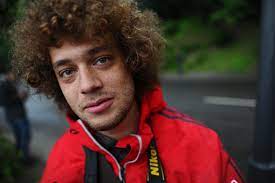
Russian Youtuber Ilya Varlamov. Photo: Wikimedia Commons/Mitya Aleshkovskiy
[/vc_column_text][vc_custom_heading text=”6. Youri Doud – blogger”][vc_column_text]Born in East Germany in 1986, Youri Doud sees himself as Russian by identity. He’s worked as a freelance journalist and in 2017 he launched a Youtube channel with the purpose of interviewing Russian celebrities. After Russia began its so called “mission” in Ukraine, Doud shared on his Instagram account a song called 100-year War, written by the group Noize MC, which has achieved millions of likes and reactions. The song discusses what artists should do when it’s not within their power to change a political catastrophe which is developing. The conclusion of the band is short and clear: “We have no other choice than to honestly speak up about what is happening. So that’s what we are doing.
I was in Zaporizhzhia on the morning of 12 March. I wanted to get to Mariupol to write an article; I thought that I had to tell the truth from the blocked city. It was my initiative.
I found out that a humanitarian convoy was going to Mariupol. I went to the assembly point but the convoy had already left. I contacted the authorities and asked them if I could catch it up. They replied that I could try. I did not find a personal driver, so I left with another convoy heading to Polohy. We caught up the Mariupol convoy near Vasylivka, and I continued with them.
I came across the occupiers’ first checkpoint in Vasylivka. Russian soldiers thoroughly checked me. They made me unzip my coat and show the contents of my bag. They found a camera and asked if I was a journalist. I confirmed this. They told me that I had no business in Mariupol and that I should return to Zaporizhzhia. They inspected my phone and camera and found nothing. I asked permission to continue with the column. The occupiers did not mind. We stopped overnight in Berdyansk.
We continued our way in the morning but we were stopped near the city limits and we were told to wait for permission. We were waiting for two or three hours by a crossroads where the roads to Mangush, Energodar and Vasylivka go. Rumours started to spread that we wouldn’t be allowed to move.
Cars passed by and a woman from the convoy told us that she had found some local guys who were willing to drive us to Mariupol. When we arrived at the agreed place, the car was no longer there. The Russian military told us to wait and started talking with us.
I stepped aside. I was thinking of returning to the convoy but a Russian soldier approached me and asked me to show him my phone. He told me that he had instructions from above to check me.
He asked if I was a journalist. I did not lie as it could make things even worse. He asked to show him my WhatsApp account and he saw the contact of the security services of Zaporizhzhia. There was a message with a request to publish a video of a Russian soldier who had swapped sides to join Ukraine.
Some other soldiers began to interrogate me. Then they spoke with Metropolitan Luka [a priest of the Ukrainian Orthodox Church]. Luka and other clerics were leading the convoy. When they returned, they said I had to go with them. I was put into a prison van accompanied by four Chechen paramilitaries who took me to the Berdyansk district administration office.
I was met by people dressed in black and wearing balaclavas. They seemed to be very young, less than 30 years old. They started to interrogate me, searching me and inspecting my phone and documents. They told me that I was not a journalist but a spy and a propagandist which I denied. It lasted for an hour. Then, one of them said: “Everything is clear with you”. I realised later they were from the Russian security services, the FSB.
One of the men in balaclavas brought in his commander. When I asked him who he was, he replied: “I am the man. You have two options: you either go to a jail for women or to a Dagestani military base.” I asked them what that meant. They did not explain. Then two men grabbed me, put a blindfold over my eyes and took me out of the room. I was crying, explaining that I was a journalist, that people would be looking for me, and that they would not get away with it. They took me to the local office of the SBU, the Ukrainian Security Service.
I was met by Chechens and Dagestanis who put me in a tiny room with a chair, a table and a window which they closed and told me not to approach it. They brought a blanket on which I slept on the floor. It was light and warm there. I was taken out only to the bathroom. Almost all my stuff was taken. When I asked when they would let me go, they answered, “When Kyiv is taken”. They added “Luka is in charge of the convoy and he refused to take you”.
From time to time, I was interrogated by Russian occupiers.
“We have no conscience. The law does not exist for us,” the FSB guys said. “Ukraine does not exist anymore.”
They repeated this every day.
“If we bury you somewhere here, no one will ever find out. You will be lost forever,” they said.
I had no fear. I knew they were trying to break me. But I felt desperate because I knew nothing about the outside world, and I was not able to do my job.
“We do not fucking care that you are a woman and a journalist,” they shouted.
But I knew the fact that I was a journalist restrained them.
At some point Chechens joined in with the daily moral pressure of the FSB guys. They guarded me and tried to convince me to cooperate.
“They are serious. They won’t let you go for nothing. You’d better to cooperate with them because you are so young. Otherwise, you will stay here forever,” they said.
They added: “We are the power. They are the brains.”
They brought me some food, but I refused. The first days I ate my remaining supplies from Zaporizhzhia. When it was finished, I took nothing but sweet tea. I felt my energy leave me. It was difficult just to get on my feet. During the last visit of the FSB men, I was not able to stand. But I continued to demand my release. When I cried too loud, one of the Chechens hit me and told me that I wasn’t at home, and I should watch my tone.
There were a few empathetic men among them, nevertheless. They came to ask if I was OK, asked me to eat something and begged me not to kill myself.
I asked to be allowed to make a call. They refused. Afterwards, the FSB told me that there would be a neutral interview and then I would be released. I insisted that I wouldn’t lie. They agreed. They brought a camera after a while. They had a prepared text with them, and they demanded I read it. I did not agree with the wording “high probability of having saved her life”. Eventually I agreed to shoot the video and they dropped the previous demands regarding full support of Russian actions and accusations against Ukraine.
Once the video was completed, they took me to another place. It was the local jail in Berdyansk. They refused to return my phone and camera as they considered them “propaganda tools”.
I spent the night in a room with a Russian soldier, who was supposed to guard me. The electricity and heating were cut off during the night. It was very cold. With my flashlight I counted the hours until morning. The soldier told me that the people who had interrogated me were from FSB. He was afraid that I would kill him during the night. He asked me whether I considered them as occupiers. Then he put the Ukrainian flag and the national emblem near me and said: “This is to calm you down. You see, we did not destroy them.”
In the morning, they blindfolded me again. Then they took me out of the jail and showed me the direction to go. I reached the closest bus station and went to the location of an evacuation convoy. I left with them the next day to territory controlled by Ukraine.
I am sincerely grateful to everyone who put in their efforts to find me and release me.
This account was first published by independent Ukrainian news channel hromadske and is published here in English for the first time.
Oleksandra Matviichuk is head of the Centre for Civil Liberties in Kyiv. She recorded this video for Index on Censorship to appeal to the international community to act over Russian abuses of free expression in the Ukrainian territories occupied by Russian troops since 24 February. She is particularly concerned with beatings and abductions of protesters and journalists in cities in the southeast of the country and names Khakova, Mariupol, Kherson and Berdyansk in her powerful testimony.
Index has been working closely with members of the Ukrainian media and civil society since the outbreak of the conflict. It is our intention to build a network of journalists, writers and artists in Ukraine itself and in the diaspora to help keep the outside world informed.
Index was inspired by dissidents in Russia and Czechoslovakia who protested against the Soviet invasion of 1968. We are proud to stand by those who continue to fight for freedom of expression in Ukraine today.
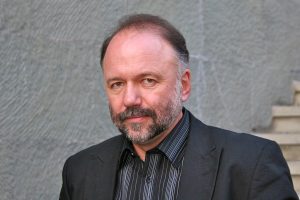
Celebrated Ukrainian author Andrei Kurkov. Photo: Juerg Vollmer
After five days of silence, my friend, a writer, journalist, and historian in occupied Melitopol, finally sent me a message. I’d been afraid something had happened to her, that I would never hear from her again. But, thank God, it turned out that she’d simply had no internet access or telephone reception. I asked her to keep a diary of life under occupation, to take photos on her smartphone, and to send all that to me. I would keep it safe. The original diary could then be destroyed.
She’s been living under occupation for more than two weeks and doesn’t set foot outside, for fear of being captured. The director of the Melitopol History Museum, Leyla Ibragimova, a Crimean Tatar, has already been kidnapped. They terrorised her, interrogated her, confiscated her and her family’s phones and computers — then released her. The next morning they picked her up for another interrogation. Activists and journalists are disappearing in the occupied territories. FSB agents walk the streets with lists of names and addresses in hand. These lists were prepared before the start of the war.
Oleg Baturin, a journalist from Kakhovka, was abducted by the Russian military. Eventually, he was released — after eight days of beatings and torture, of demands to go over to the Russian side, of hunger and thirst, of humiliation. Those who beat him hid their faces and forbade him to raise his head and look at them. Is this today’s Russia? Yes. But it is also the Soviet Union of the 1930s. These are the practices of the Gulag. The Ukrainian author Stanislav Aseyev wrote an entire book about the torture camp in Donetsk. After two years of captivity in this camp and in the prison run by separatists, he had plenty of material. He studied closely those who beat and abused Ukrainian prisoners of war and others who had been seized on the streets and brought to this already infamous concentration camp, called “Isolation.” Years ago, the place had been a factory for the manufacture of insulation for electrical wires. Later, under the same name, it became a contemporary art centre. When the separatists, aided by the Russian military, captured Donetsk, they converted it into a concentration camp, with a set of chambers in which all their detainees were tortured. Stanislav Aseyev’s book has already appeared in several languages, including English. I highly recommend it to anyone who seeks to better understand what went on and continues to go on in the separatist “republics” since 2014. And now the same things are happening in the territories occupied by the Russian army.
We’re well into 2022. Books about what is happening now in Ukraine are already being written, but are not yet published.
The unsuccessful attempt to annex or, to put it plainly, occupy all of Ukraine has angered Putin and now, judging by the military actions of the Russian army, Russian generals have been ordered to destroy cities and villages, to kill civilians, and simply to make sure that Ukraine ceases to exist.
This is not the first attempt to destroy Ukraine and Ukrainians. In the late 1920s, Ukrainian peasants refused to join collective farms, and for this the Soviet government deported 250,000 families to Siberia. In 1932-1933, as punishment for the same individualism and unwillingness to become part of Soviet collective agriculture, all reserves of wheat and, indeed, all sources of nourishment were confiscated from Ukrainian peasants, leaving them with no food for the winter. Some seven million Ukrainians perished during this artificial famine organised by Moscow.
In those same years, the Soviet government decided to destroy Ukrainian culture. Nearly all the country’s leading writers, poets, and playwrights were arrested, sent to Solovki in the north of Russia, and shot. In Ukrainian literary history, the authors of this period are referred to as the “Executed Renaissance.” These people had tried to revive Ukrainian culture after decades of official prohibitions on the use of the Ukrainian language and on anything distinctly Ukrainian in tsarist Russia. Soviet communists had decided that the revival of Ukrainian culture posed a danger to the Soviet Union. And alongside the writers, poets, and playwrights they executed, the NKVD also shot many artists and theatre directors. The works of Mykhaylo Semenko (1892-1937), Maik Yohansen (1895-1937), Mykola Zerov (1890-1937), and dozens of other Ukrainian writers killed in that purge could only be published again after the collapse of the USSR.
Today’s Ukrainian intellectuals face the same danger. That goes for writers and journalists and historians. Anyone who believes that Ukraine should remain independent and become part of Europe is already an enemy of Russia. Culture is what cements a nation. Ukrainian culture has only just begun to revive after 70 years of Soviet rule, 70 years of censorship and persecution.
But today that culture and its representatives are the targets of Russian bombers. The attacks on Kyiv have killed Artem Datsyshyn, the principal dancer of the National Opera of Ukraine, and the famed actress Oksana Shvets. Near Kyiv, in the village of Bucha — home to a number of writers and composers— Oleksandr Kislyuk, a well-known translator from Ancient Greek and other languages, a teacher at the Theological Academy, and a professor at the Drahomanov Pedagogical University, was shot by Russian soldiers on the threshold of his house. It is thanks to him that Ukrainians can read the works of Aristotle, Tacitus, Thomas Aquinas, and other classic authors in their own language.
Now Oleksandr Kislyuk has been murdered and one wonders who will finish the translations he was working on in his final days.
Among those killed in this war are at least three painters. There are also photographers and scientists, musicians and architects, schoolteachers and university professors.
For almost a month, now, Russian bombers have been aiming directly at schools and universities, theatres and libraries.
Near Kyiv, in the village of Ivankiv, a bomb hit a historical museum that housed the works of famous Ukrainian primitive artist Maria Prymachenko (1909-1997). While the museum burned, locals carried her paintings out of the fire. Now those canvases are kept in the homes of people who live next to the ruined museum.
The Ukrainian Ministry of Culture has sent an order to all museums to prepare their exhibits for evacuation to Western Ukraine. Some museums managed to pack up their collections, others simply lowered them into basements and underground rooms. But none have so far been evacuated. The most important thing is to evacuate people from cities under constant bombardment and artillery fire.
For two weeks, Ukrainian writers tried to extract their colleague, the Russophone prose writer Volodymyr Rafeyenko, from the village of Klavdiyevo, which was practically destroyed by the Russian army. He is a refugee twice over. First, in 2014, he had to leave his apartment in Donetsk. Since then, he and his wife had been living in Klavdiyevo, at the dacha of the Ukrainophone writer and translator Andriy Bondar. Klavdiyevo has been all but flattened by Russian artillery and is surrounded by their tanks. Volodymyr and his wife spent more than a week in the basement of a half-collapsed house. At long last, they managed to break out of encirclement and volunteers took them to Kyiv.
Kyiv is also being hit by rockets, but not so intensively. The chances of survival are greater in Kyiv. There, in his apartment near the railway station, the publisher Mykola Kravchenko* sits at his table and works. He’s editing a novel by a young woman from Lutsk, titled Porcelain Doll. The novel concerns domestic violence. He knows that he won’t be able to publish it anytime soon, but he continues to work in order to preserve his psychological balance, in order to think less about the war.
Yet the war, including the violent attack on Ukrainian cultural heritage, continues. The number of bombed-out churches is already in the tens.
The Ukrainian Ministry of Culture is still at work and every day its employees collect new information about the historical sites and cultural institutions destroyed by the Russian army.
The list of Russia’s crimes against Ukrainian culture is constantly being updated.
* Editor’s note: Not the Ukrainian political figure of the same name who died in the early days of the Russian invasion of Ukraine.